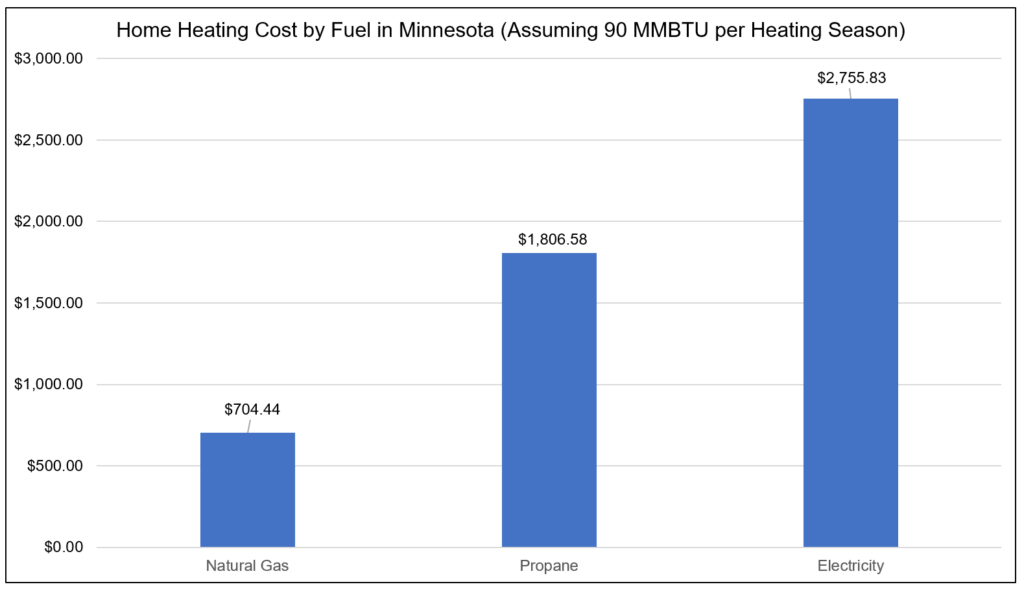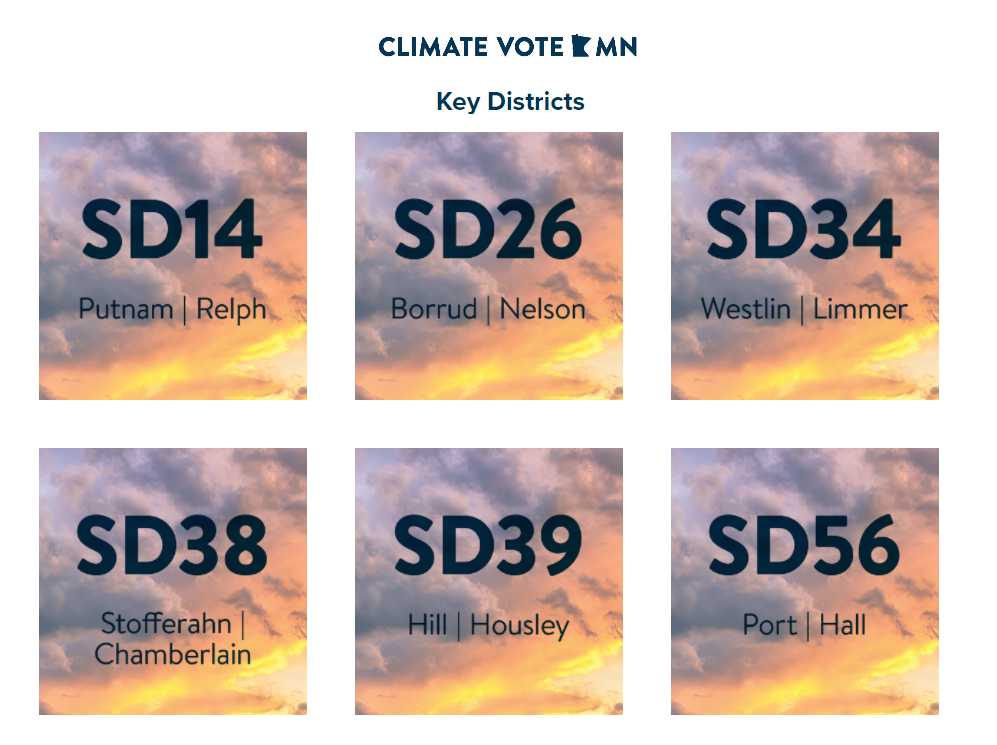Wind and Solar Special Interests Spent Big To Defeat Senate Conservatives
Elections have consequences, and because the outcomes of the recent elections will have important implications for energy policy in the next two years, it helps to examine the election results. It also helps to understand how groups seeking to mandate more wind and solar on Minnesota’s grid spent their money to influence these results.
Post-Election Legislative Makeup
The post-election composition of the Minnesota legislature is similar to the pre-election composition.
Minnesota Republicans held onto a 34-33 majority in the Minnesota Senate and they made substantial gains to narrow the DFL majority in the Minnesota House. Additionally, a breakaway caucus of two moderate Senate DFLers from the Iron Range—Tomassoni and Bakk—will caucus independently and ally with Republicans, further weakening Senate Democrats’ position.
The makeup in the legislature means the worst policy proposals from liberal lawmakers, like Governor Walz’s proposed 100 percent wind, solar, and battery storage mandate for electricity generation, are likely off the table for the next two years.

However, several pieces of harmful legislation supported by liberal environmental groups will almost certainly be up for consideration in the Republican Senate. These measures include the Energy Conservation and Optimization (ECO) Act, which would force you to subsidize electric vehicles and expensive heating with electricity, and the Clean Energy First bill which would rubber stamp Xcel Energy’s proposed Green New Deal and cause massive increases in electricity prices.

Despite their negative impacts on Minnesota families and businesses, environmental groups such as the Center for Energy and Environment were strong supporters of these bills. Other organizations supporting one or both of these pieces of legislation were the Laborers International Union of North America (LIUNA) Minnesota & North Dakota, the International Brotherhood of Electric Workers (IBEW), and Conservation Minnesota.
These groups also happened to spend large sums of money during the election to unseat conservative Senators in the hopes of flipping the Senate from Republican control to the DFL.
Wind and Solar Advocates Spend Big Against Conservatives
A look at campaign finance reports from the 2020 election published in late October show the Laborers International Union of North America (LIUNA) Minnesota & North Dakota, various units of the International Brotherhood of Electric Workers (IBEW), and Conservation Minnesota, as well as its independent expenditure arm (Climate Vote Minnesota) collectively spent $1.7 million to influence the outcome of competitive Minnesota Senate races and 97 percent of these contributions when to Senate Democrats.
These contributions came in the form of direct contributions to Senate candidates, donations to state and local DFL party units, and independent expenditures in Senate races, which include running ads and mailers supporting or attacking a candidate for their positions on energy issues.
During the 2020 legislative session, Conservation Minnesota identified the ECO Act as one of their top priorities, and while we are lucky that this bill did not become law, it received favorable action in the Republican-controlled Senate Energy & Utilities Committee where some Senate Republicans voted in favor of the bill.
Apparently, this support for the ECO Act was not enough to satisfy the environmental groups, as the Conservation Minnesota Voter Fund and its independent expenditure group, Climate Vote Minnesota, which share the same office and principal staff, went all in for Senate Democrats in 2020 elections.

As of October 2020, Climate Vote spent $377,758 on independent expenditures in six of the most competitive Minnesota Senate races – all against Senate Republicans or in support of their Democratic opponent. This includes:
SD 14 (St. Cloud): $54,795 for Aric Putnam (DFL), $4,733 against Sen. Jerry Relph (GOP)
SD 26 (Rochester): $58,883 in support of Aleta Borrud (DFL), $13,995 against Sen. Carla Nelson (GOP)
SD34 (Maple Grove): $47,588 for Bonnie Westlin (DFL), $4,051 against Sen. Warren Limmer (GOP)
SD 38 (Hugo): $58,878 for Justin Stofferhan (DFL), $10,804 against Sen. Roger Chamberlain (GOP)
SD 39 (Stillwater): $57,462 for Josiah Hill (DFL), $8,353 against Sen. Karin Housley (GOP)
SD 58 (Burnsville): $53,244 for Lindsey Port (DFL), $4,972 against Sen. Dan Hall (GOP)
Climate Vote Minnesota is a “nonpartisan organization” on paper but plainly dedicated to flipping control of the Minnesota Senate by defeating Republican incumbents in those six seats.
Climate Vote attracted donations from others in the energy policy world, including Mike Bull – policy director for Center for Energy and Environment (CEE). Bull was lead proponent for Republican Senator David Senjem’s Clean Energy First (CEF) and vocal supporter of Senator Jason Rarick’s ECO Act proposal. Another apparent contributor, Joe Sullivan, was confirmed to a seat on the Minnesota Public Utilities Commission (PUC) by the Republican-controlled Senate in September 2020, just before giving to Climate Vote.
Like Conservation Minnesota, IBEW supported the ECO Act during the 2020 session. And, like LIUNA, IBEW’s various Minnesota-based units spent overwhelmingly in support of Senate Democrats. In total, IBEW COPE, State Council, and Locals 110, 292 and 343 combined to contribute $293,400 to candidates, caucuses and party units. Of this, $272,400 went to Democrats.
LIUNA supported Senator Senjem’s CEF – despite a widely shared belief that CEF would accelerate the closure of Minnesota Power’s Boswell Energy Center where 150 IBEW members work and whose continued operation is vital to providing the reliable, affordable energy needed to power thousands of union jobs in mining and forestry.
We discussed how vital this power plant is to the iron mines and surrounding communities in our Spring 2020 issue of Thinking Minnesota.

LIUNA contributed $722,000 to Democrat party units, caucuses and Senate candidates. Its independent expenditure arm spent an additional $249,022 to boost Senate Democrats in the election, including in the six key races identified above. This compares to $30,500 in total contributions to Republican Senate candidates and party units.
Why did these groups essentially go all in for Minnesota Democrats in the 2020 Elections? It may have been the prevailing wisdom that President Trump was deeply unpopular in the suburbs and would lead local Republicans off a cliff.
Senate Republicans entered the 2020 Campaign in a precarious position. They held a narrow 35-32 majority. A number of Republican incumbents won by small margins in 2016 and held suburban seats that trended heavily to the DFL in the 2018 election.
Perhaps Conservation Minnesota, LIUNA and IBEW thought their political might could tip the scales and an all-DFL Legislature would make their green dreams come true. Luckily for all Minnesota families and businesses, it didn’t work out that way.
Conclusion
Some Republican lawmakers who are good conservatives on issues like taxes and regulation are eager, even desperate, for a “Get Out of Jail Free” card, and they often see voting for liberal energy and environmental policies that increase the use of wind and solar as their ticket to balancing out their voting record.
Unfortunately, they see capitulating to environmental interest groups—even extreme ones—as an electoral necessity.
However, the huge sums of money spent against conservative lawmakers in the last election cycle should dispel this myth. The days of groups seeking practical environmental changes are gone, and the new, extreme environmental groups will never be satisfied. This begs the question, why should conservative lawmakers spend any time trying to appease groups who have invested so much to take their jobs away?